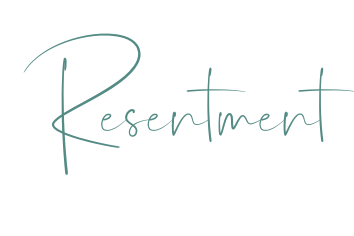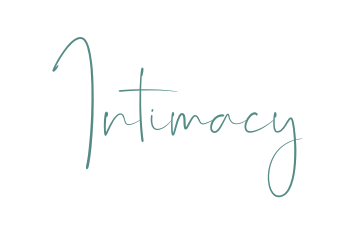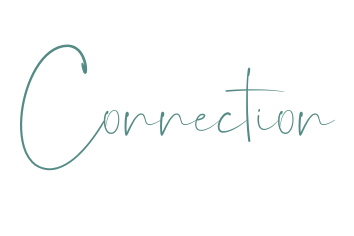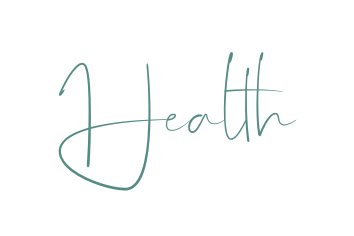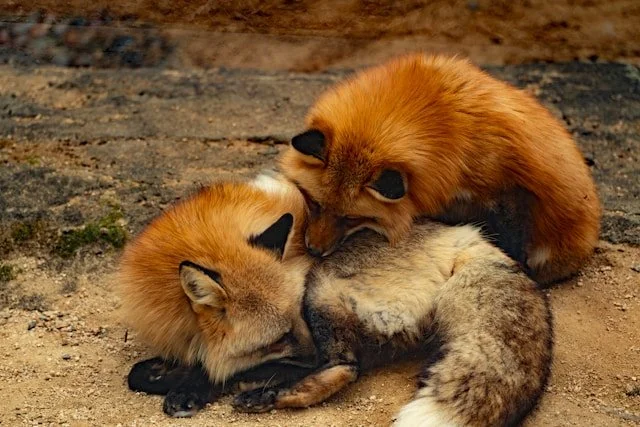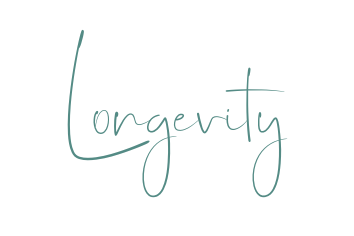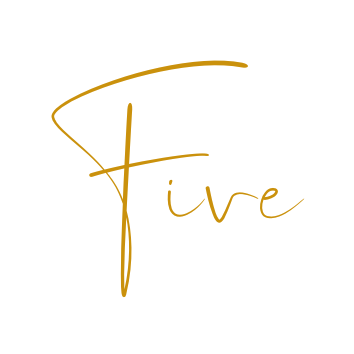Overcome conflict avoidance: nine ways to stop being afraid to argue
In romantic relationships, conflict is often seen as something to be avoided at all costs. While the idea of maintaining peace sounds appealing, avoiding conflict can ultimately be detrimental to the long term health of a relationship and the potential for deeper intimacy and meaning.
For those of us who are conflict avoidant, the prospect of even considering any kind of confrontation can bring up strong feelings of fear and insecurity, but today I’m making the strong case for overcoming these uncomfortable moments, rather than avoiding them to give your relationship the best possible chance of success and avoid the negative long term damaging consequences that avoidance of conflict can bring.
Are you afraid to argue? Or is your partner conflict avoidant? In this blog I’ll explore why avoiding confrontation can be unhealthy for couples, how it may stem from childhood or past relationship patterns, and offer nine easy to follow steps for approaching conflict with more safety and compassion.
What is conflict avoidance? A definition.
Conflict avoidance is the tendency to sidestep disagreements or tough discussions, often out of fear of the emotional toll they could take. Whether it's confrontation avoidance or a more deep-seated fear of conflict, we might do everything we possibly can to prevent any situation where tension could arise in the hope that we can maintain the status quo and keep things ‘peaceful.’
Whilst no-one likes being on the receiving end of anger, angrophobia is a visceral fear at the expression of anger in others, even if it’s not directed our way. This intense discomfort can prompt us to run in the other direction at the first sign of conflict.
When conflict avoidance becomes a problem
It’s probably fair to say that no-one really enjoys an argument, there are rarely any winners when things get heated and tensions run high, so avoiding it for the most part is a fairly instinctive tendency in many of us. But when it is our default mode rather than an empowered choice, we can run into difficulty.
What causes conflict / confrontation avoidance?
Avoiding conflict is common and when we consider all the many factors that get in the way of our ability to handle conflict it’s no surprise. I wonder if any of the following resonate with you?
We just don’t know what to do for the best.
A lack of skill and practice in conflict resolution, coupled with a worry that our ineptitude might end up making things worse, can easily convince us it’s better to ignore the issue and hope it goes away.
Self-doubt and lack of confidence.
If we question our perception of reality or invalidate and doubt our own feelings, the inevitable lack of confidence makes it hard to step forwards and tackle challenging situations with any conviction.
We long for peace and harmony and are naturally agreeable in nature.
Stepping outside of our usual tendencies of people-pleasing or agreeableness can feel awkward, uncomfortable and risky. The tendency to bypass difficult conversations hoping that we can just skip straight to peace and harmony gets in the way of our ability to authentically handle conflict.
Big emotions are exhausting.
If challenging conversations feel draining we might avoid the necessary depth to explore and resolve conflict in a meaningful way. Avoiding the conversation might feel like protecting your energy in the short-term, but if the issues fester away, it’s actually causing harm in the longer term.
We’re worried about being caught out.
If we feel responsible for the difficulty in the first place, raising it might mean we are confronted with our ‘bad’ behaviour and the shame of being called out prevents us from ever raising it.
We feel attacked and defensive.
If we approach challenges on the backfoot of feeling wounded and feeling like we need to defend ourselves, it blocks our ability to see things from our partners’ point of view and we stay focused on self-preservation, rather than mutual understanding and repair.
We grew up in an unsafe or conflict avoidant environment.
If we grew up in an environment where anger or conflict was poorly managed by our care givers - for example when we grew up in an abusive, hyper critical or dismissive environment, or when conflict was avoided altogether - and our childhood was marked by superficial fake harmony, this can reinforce our fear of conflict long into adulthood.
“If you avoid conflict to keep the peace, you start a war inside yourself.”
Cheryl Richardson
Conflict avoidance through the lens of attachment styles
Let’s dive deeper into our childhood experiences, and how they shaped our understanding of healthy dialogue vs disruptive conflict
At the heart of many fears surrounding conflict is unresolved trauma or emotional wounding from earlier in life. Attachment theory tells us that how we were cared for and nurtured as children can directly influence our adult relationships, and not always for the better.
Insecure-Anxious Attachment Style:
Those of us with insecure anxious attachment styles may struggle with confrontation anxiety, as we fear being abandoned or rejected during times of disagreement. If we take our cues of safety from the closeness or warmth of the relationship, when that is threatened we feel anxious and either cling or panic, anything to avoid conflict which might sever the relationship for good.
A study in Psychological Science (2015) found that people with an anxious attachment style who avoided conflict often reported feeling more insecure in their relationships, as unresolved conflicts left them uncertain about their partner's feelings and commitment. This feeling of instability can in turn lead to unhealthy dependency, clingy behaviours and a constant need for reassurance which can be challenging to navigate, particularly if our partner has a more avoidant attachment style and finds those behaviours suffocating or uncomfortable.
Insecure-Avoidant Attachment Style:
Those of us who have a more insecure avoidant attachment style are easily overwhelmed by too much emotion. We avoid conflict due to fear of emotional overwhelm and flooding of feelings. There might also be an inadequacy wound at the core where we worry about not living up to expectations, and failing as a partner. We might have been taught self-reliance and see emotional distance as a place of safety, and closeness as a place of potential danger. The closer we get the more likely it might be to fail, and we can’t risk that shame. Suppressing feelings was a good strategy growing up, but our tendency to shut down, withdraw, change the subject or disappear altogether is no longer serving us.
Despite the above challenges of avoidant and anxious attachment patterns, both styles ultimately yearn for the same thing: a secure connection free from conflict. Let’s dive deeper into why avoiding conflict is such a visceral threat to the health of your relationship, and then let’s look at what we can do differently to create the peace, harmony and connection we all crave.
To help you build the trust in yourself that you can handle any conversation without being triggered, and remaining in control of your emotions, leave your details here for a free Discovery Call:
Top six reasons why we shouldn’t avoid conflict by Love & Relationship Coach - Therapist Karin Peeters
While it may seem easier to avoid confrontation in the short term, the long-term effects of conflict avoidance can be far reaching and potentially more harmful.
There is some very clear evidence from the wealth of research that has been done into this arena as to why conflict avoidance is not the best long-term strategy in our loving relationships. Let’s explore together why avoiding confrontation means sacrificing your own needs and eventually also the needs of your relationship.
Emotional build up and resentment
It’s natural that niggles occur in any relationship, things come up and whilst in and of themselves they may seem insignificant in the moment, those smaller resentments act in a way like a drop of water dripping onto a rock, each little drip is small and seems to have little impact but over time the drips gradually erode the rock itself.
Resentments build from the accumulation of unresolved issues when we bottle our feelings and those pent-up frustrations and resentment is very likely to lead to dissatisfaction and emotional distance. A study of over 18,000 by Rosand et al published in the Journal of Social Psychiatry and Psychiatric Epidemiology, in 2013 found very convincingly that unresolved conflicts often lead to relationship dissatisfaction and emotional disengagement, as suppressed emotions gradually surface in harmful ways.
When conflict is unresolved, our emotional needs remain unmet and as I partly explored in my blog on people pleasing can ultimately lead to resentment or us pulling away from our partner, creating a widening gap of emotional distance that becomes harder and harder to bridge as time goes on.
Decreased relationship satisfaction and emotional intimacy
A 2016 study published in the Journal of Social and Personal Relationships found that couples who engaged in conflict avoidance showed lower levels of relationship satisfaction and emotional intimacy. When we avoid discussing important issues for fear of confrontation or things escalating into conflict we get in the way of that deep emotional connection that is so central to a healthy romantic relationship. When we don’t really talk we have little opportunity to truly understand the needs and feelings of our partner, when we feel unheard or misunderstood, trust erodes over time and our sense of safety diminishes. This has a natural knock on effect on intimacy.
unhelpful repeating patterns that block our ability to connect
Avoiding conflict doesn’t just mean that things get left unresolved, but can also contribute to new dysfunctional and unhelpful patterns of behaviour developing. Without a clear process for communicating our wants, needs and frustrations we may find ourselves, or our partner, resorting to passive aggressive behaviour as a way of directing stored anger, or stonewalling and avoiding conversations entirely. When we make snarky passive aggressive comments when we poke at our partner with thinly veiled insults, instead of naming clearly our true feelings our partner can easily feel attached or belittled. We don’t create a safe space for real conversations. Equally Stonewalling, the act of withdrawing completely and shutting off from our partner creates an impenetrable barrier and once we become practiced at shutting down or pushing our partner away it’s hard to get out of that loop. The more we engage in these patterns the harder it is for us to find effective ways to communicate and the harder it is to resolve problems.
negative impact on our mental and physical health
Research from the University of California, Berkeley (2010) indicates that relationship conflict avoidance is linked to increased stress levels and higher levels of anxiety. When conflict is avoided, feelings like anger and frustration have no way to be processed and resolved in a healthy way and can often become internalised to feelings of emotional distress and a likelihood of developing anxiety and depression.
It’s not just our mental health that suffers, mental stress takes its toll on our bodies too. A study published in Psychosomatic Medicine (2000) found that couples who engage in frequent conflict avoidance have higher levels of chronic stress, which we know is linked to so many physical problems such as high blood pressure, cardiovascular issues, and a weakened immune system.
Internalising conflict leads to lowered self-esteem
When we suppress our own emotions, avoid conflict and instead simply get angry at our partner in our own head, in psychology we call this ‘internalising conflict’, it creates a build-up of tension that never gets expressed and in the long term contributes to lack of self-worth. Particularly if we turn that anger inwards onto ourselves and have a self-critical internal dialogue where we find fault, blame and berate ourselves for the difficulties instead of expressing them externally in a healthy way.
risking the future of your relationship
Couples who frequently avoid conflict are at higher risk of ending their relationship. A repeated inability to repair after disagreements and a lack of engagement with important concerns is directly correlated to higher divorce and break-up rates (Gottman 2012).
These example show that whilst on the surface it might seem like the obvious move of a peacemaker to avoid difficult conversations for the benefit of the relationship, it may actually do more harm than good…
Let’s look at Confrontation Avoidance through the lens of the PAC Model from Transactional Analysis
When you end up in parent-child dynamics with your partner, this changes everything about the conflict, and not for the better:
Avoiding conflict may also inadvertently reinforce unhealthy relational patterns. Transactional Analysis provides us with a helpful lens to look at some of these potentially unhealthy patterns. One of the core concepts of TA is the Parent-Adult-Child model, which describes how we interact based on three different ego states. I share more about TA and these states in my post here but fundamentally the states are;
Parent Ego State: This represents internalised rules, expectations, and beliefs, often modelled after authority figures in childhood like parents or teachers. When we are operating from this ego state we can become controlling, demanding or belittling and talking down to our partner.
Adult Ego State: This is the logical, rational, and objective part of our personality that processes information in the here and now, making decisions based on reality. This feels like a healthy and comfortable place to be when the relationship is on equal footing and no one person feels subjective to or dominant over the other.
Child Ego State: This represents feelings, desires, and reactions that are based on early childhood experiences. It’s more emotional and reactive, often colored by past experiences. When we operate from this space we can be either healthily playful and curious, fun loving and spontaneous or on the down side rebellious, reactive and perhaps a little wilfully out of control.
In relationships, we tend to revert to one of these three ego states when navigating conflict. If you’ve ever had that frustrating experience of feeling like you’re dealing with a child in an adults’ body and find yourself talking down to them as if you’ve become their parent who needs to discipline them, or that belittling experience of being the one spoken to like a child as if you are someone who needs a telling off to ‘behave properly’? Then you’ll be familiar with what it feels like when these ego states get in the way of healthy communication.
Imagine a situation where one partner (let's call them Adam) is uncomfortable with confrontation and tends to avoid difficult conversations, adopting the role of the peacemaker. Adam may do this to keep the relationship smooth and avoid tension, but this avoidance can lead to unhealthy relational patterns.
Adam could for example be acting from his child ego state. Having learnt in early life that conflict leads to negative outcomes, perhaps when acting out as a child he was met with punishment or neglect, Adam would naturally adopt the role of peacemaker and either stay silent to avoid anger and emotional rejection, or take a fawning / people pleasing approach at the first sign of trouble. Rather than being an empowered and proactive role, this behaviour is actually a form of avoidance and isn’t sustainable in the long term for a healthy relationship.
Let’s imagine Adam’s partner (let’s call them Charlie) may unknowingly respond to Adam from their own parent ego state taking on an authoritative role, unintentionally reinforcing Adam's avoidance. Charlie might say something like, “We need to talk about this issue” in a tone that demands compliance, triggering Adam’s fear of confrontation.
In this case, by avoiding the conversation, Adam is reinforcing unhealthy dynamics by staying in his child ego state, while Charlie's reaction might unknowingly reinforce a more authoritarian role.
This creates a parent-child dynamic in the relationship, rather than a more equitable adult-to-adult interaction. Over time this dysfunctional loop is created where both Adam and Charlie get stuck in roles of fear and control which just perpetuates.
If we never learn to meet conflict in a healthy way, these patterns stay with us and (rather inconveniently) don’t tend to disappear even if we move on from this relationship. These dysfunctional behaviours and patterns can be passed down both through generations and into our next relationship.
Overcoming Confrontation Anxiety - What can we do differently?
The first step is to reframe our view of conflict from one that is dangerous and to be avoided, to one that is essential for the ongoing health of our partnerships.
How to see your fear of confrontation and conflict in a new, more positive light
What is easy to forget is that confrontation, in itself, is not harmful — it’s the way it is approached that makes all the difference. Much of the therapeutic research actually points to confrontation being a necessary part of a healthy relationship, as it provides an opportunity for us to communicate our needs, set boundaries, and grow emotionally together. Healthy confrontation can lead to deeper emotional intimacy and trust.
While the idea of confronting difficult emotions can be intimidating, there are simple things we can do to help navigate these conversations in a healthier way. I’ve added buttons to other blog posts, so you can delve deeper where you want to learn even more about having those important conversations with yourself and your partner in the most resilient way.
Raise your self-awareness:
What am I thinking and feeling in this moment? What is it that has led to that feeling? Is there a trigger that is often present that leads me to avoiding conflict? What is my unmet need here? What is uncomfortable about this and how would I like things to be different? By taking a moment to reflect we can avoid knee jerking and take a step closer to honouring our feelings and emotional needs.
Avoid judgement or assumptions:
Am I jumping to conclusions or judgements without evidence? Are my conclusions correct, or based on a primal emotive instinct and not based on here-and-now reality? You can read more about this dynamic in my blog on Cognitive Behaviour Therapy (CBT).
Take care of your nervous system first:
As soon as you can, when the first signal of conflict or discomfort arises, pause to enable you to be in the calmest, most resourceful state possible. Prioritising nervous system safety will enable you to respond rather than react and keep your rational, thinking brain in play giving you more access to your adult resources. Be careful not to use this as another reason to avoid confrontation all together. A pause for self-care isn’t a postponing strategy, hoping that the issue will disappear on its own. It’s unlikely to. To read more about the science of self-regulation you might like to read my blog on Polyvagal Theory.
And it really helps to communicate what’s happening for you with your partner. When you for example need to take some time or space to regulate yourself, it can help to let your partner know that you value the relationship and the best outcome, and that you are taking some time to be with yourself (20 minutes is often all that’s needed). Letting them know you’ll be back and giving them a time frame can help with reassurance and avoids potential feelings of abandonment in your partner.
Be clear to be kind:
In the words of shame and intimacy researcher Brene Brown ‘it is kinder to be clear’. Hiding how you really feel, not putting down a boundary or avoiding the elephant in the room isn’t just dishonouring your own needs, but is also a disservice to your partner.
If you’ve promised your partner that you will attend to them and the challenge at hand and you’re not quite ready within your expressed time frame, let them know. Re-negotiate if necessary, but don’t leave them hanging.
When both parties know where they stand it provides a level paying ground from which to move forwards.
In the words of Stephen Covey ‘seek first to understand’:
When it comes to a conversation: listen, listen, listen. Using a warm empathetic approach to listening with the intention of understanding, and then showing your understanding with validation of how they feel is key. This doesn’t mean you have to always agree with their behaviour, but recognising that they are entitled to their feelings and modelling that you can hold space for that will help them in their ability to do the same for you.
Remember this relationship matters to you:
‘Would you rather be right, or would you rather be happy?’ This helpful quote from Dr. Phil McGraw helps reminds us that it doesn’t have to be a point scoring battle, but rather when we enter into conversations with the intention to restore harmony, balance and trust we can enjoy a much happier relationship.
Use a non-violent approach to communication:
If you haven’t come across Non Violent Communication (NVC) this can be a really helpful framework to follow if you struggle to work out what to say and how. You can read more about it in my blog on Non-Violent Communication.
Celebrate when things go well:
Make a point of celebrating together what went well. Giving your partner positive praise when they are able to stay calm, respond with care and make the space for dealing with conflict will mean it’s less scary next time you need to tackle something together.
Get support:
Sometimes it’s helpful to have a safe space outside of your relationship to process your feelings, gather your thoughts, make sense of things and work on any deeply held wounds that might be holding you back from dealing with conflict. A skilled Psychotherapist or Relationship Coach can be invaluable in this work. Please do reach out if you’d like further support.
Avoiding conflict may feel like the easy way out, but in reality, it often leads to long-term dissatisfaction and emotional stagnation. Embracing confrontation with compassion, awareness, and patience can pave the way for stronger, more resilient relationships.
Remember, conflict is just what we project onto uncomfortable conversations. Talking about tricky stuff is not the enemy — it’s how we approach it that matters.
Above all, give yourself bundles of compassion as you navigate all this.











